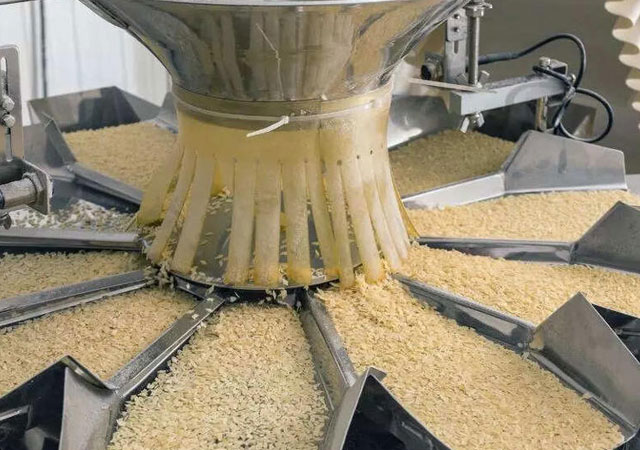 Dang Khanh Duy, CEO of Tan Nhien Ltd., has harnessed local cassava resources to create rice paper without the need for soaking in water, which is exported to several demanding markets worldwide, including Japan and South Korea.
Dang Khanh Duy, CEO of Tan Nhien Ltd., has harnessed local cassava resources to create rice paper without the need for soaking in water, which is exported to several demanding markets worldwide, including Japan and South Korea.
Born in 1988, Duy initially came into the rice paper industry as an "outsider", without a deep understanding of the craft. However, after witnessing the rice paper-making process in the southern province of Tay Ninh, he saw numerous opportunities for improvement.
He decided to take a different approach, adopting a philosophy of "decency and cleanliness," which he applied at every step of production, from manufacturing to market.
In 2018, Duy and his wife established Tan Nhien rice paper production in Hoa Thanh district, Tay Ninh province. Then, he never imagined that his brand would grow so quickly and become so popular among consumers.
Duy noticed that traditional rice paper required soaking in water before it could be used for wrapping dishes. This method was time-consuming and caused the rice paper to lose its original flavor. Determined to make a change, Duy spent time researching formulas and modifying machinery to produce ultra-thin, super-soft rice paper made from cassava - without the need for water soaking.
Unique features of Tan Nhien rice paper
One key difference is the rice paper tray. Unlike the standard round molds commonly used in the industry, Duy worked with a frame maker to design custom square and rectangular molds. This process involved experimenting with various knives and cutting boards, which proved costly but ultimately successful.
Another major distinction is Tan Nhien's commitment to producing rice paper with no added flavorings, preservatives, or colorants - making it stand out from other products on the market.
Achieving this "three-free" rice paper required extensive research and experimentation. At one point, the rice paper sometimes came out uneven, or even with discolorations, because the cassava used in the dough wasn't always stable.
Once perfected, Tan Nhien's rice paper gained the advantage of having a longer shelf life than most traditional rice paper. "Our three-free rice paper can be stored for a longer time, and unlike traditional rice paper, it doesn't become crispy and break after about three months," Duy shared.
Since its launch, Tan Nhien's super-thin, no-soak rice paper has been well received in the market. By mid-2019, the company expanded with a second factory, and by September 2020, a third factory was built.
Today, the company produces approximately 20 tons of rice paper per day, with plans to expand its offerings to include rice cakes and fried spring rolls.
Tan Nhien also uses local specialties in its salt products, such as Phan Rang garlic, Dong Thap lotus, Quang Ngai rock sugar, and Ca Mau crab, adding a unique touch to the local food scene.
Currently, Tan Nhien has two salt brands: Nhat Vi and Mr. Muoi. Nhat Vi is distributed through rice paper channels, such as agents, traditional markets, and stores, while Mr. Muoi is available in supermarkets and for export.
Tan Nhien's products are now sold in major supermarkets, including Bach Hoa Xanh, Satra Foods, and Coop Mart.
Tan Nhien has successfully expanded into international markets, exporting to markets such as the US, Japan, Taiwan, and South Korea. Exports currently account for 20% of the company's total output, with South Korea being the largest export market for the company, where it has been successfully selling for the past four years.














© Copyright 2025 The SSResource Media.
All rights reserved.